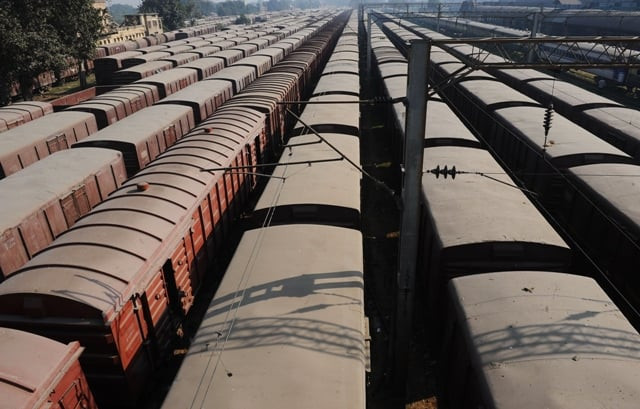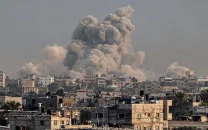Pakistan drives railways towards ruin
Corruption, mismanagement and neglect have driven Pakistan Railways to the brink.

"I've been working here since 1967. I've seen the boom of railways. Now it's a dead department," he told AFP, despondent without a single customer for a train heading on the 30-hour journey south to Karachi.
Corruption, mismanagement and neglect have driven Pakistan Railways to the brink. Haulage and passenger services have been slashed and an urgent rescue is called for to save a much-loved legacy of British rule from the scrap heap.
When Britain closed the curtain on its empire and Pakistan was born in 1947, the country inherited thousands of miles of track and trains provided the most popular and affordable transport for millions.
But as Pakistan has spluttered from crisis to crisis, tarnished by corruption, straining under the near doubling of fuel prices in five years and the expansion of domestic flights, the decline has quickened.
Since the current government took power in 2008, the railway has retired 104 of 204 trains in a country larger than Britain and Germany combined.
State-owned, it relies on handouts of Rs2.5 billion rupees a month just to pay salaries and pensions; and faces expected losses of Rs35 billion in fiscal year July 2011 to June 2012.
In October there was uproar when a retired train driver died outside a bank after waiting three days for his pension.
Railways Minister Ghulam Ahmad Bilour has no illusions about the situation.
"The state of railways is very bad," he told AFP. "It can never become a profitable organisation, if we reduce its deficit, it would be an achievement."
He blames previous governments for decades of failure to invest, but recognises that the current administration is just as guilty.
The cabinet approved emergency funding of $125 million for the railways in January but it has yet to be released by the finance ministry, Bilour said.
He says the ministry requested 300 new engines to return to normal operations "but they did not give us a single penny".
"We got 69 locomotives in 2004 from China but we did not sign an agreement to get spare parts and the engines started breaking down," said the minister.
Flying from Islamabad to Karachi takes two hours and a network of luxury coaches is considered more comfortable, which means that today only the poorest of Pakistan's 174 million travel by train.
"There is corruption and mismanagement at every level," said former railways minister, Sheikh Rashid Ahmed.
"The workers don't work, mechanics don't change the oil and the officials wait for destruction of the machinery to buy new and get commissions."
But the government is now trying to stave off total ruin. It has released a 600-million-rupee subsidy to repair engines and the board is hoping the private sector can become its knight in shining armour.
"We have devised a strategy to rehabilitate 360 locomotives with the help of the private sector and bring all of them back to working condition in the next three years," Shafiq Ullah, the secretary of the Pakistan Railways board, told AFP.
"By August, we will get all these 69 Chinese locomotives on the track," said, adding that only six freight trains are operational – a fraction of the 100 goods trains that once used to run.
Independent analysts estimate it will take at least five years and millions of dollars to haul the infrastructure into the 21st century.
"Constant neglect has led Pakistan Railways into such bad shape," AB Shahid, an economy expert and former banker, told AFP.
"They need at least three to five years to revive the department, and inject at least 25 billion rupees, for infrastructure and repairing locomotives. They should privatise local trains and improve signalling," he said.
Saqib Shirani, a former adviser to the finance ministry, said the government should remove interest from central bank loans and end political appointments.
"It shouldn't be fully privatised but investment in a few sectors like goods trains and some passenger trains will be really fruitful," he said.
But 60-year-old Hussain, despondent in the deserted station at Rawalpindi, fears none of that will come soon enough.
Desperate to repay a Rs70,000 debt for his daughters' dowries, he waits interminably. When a train eventually splutters into view, the hustle and bustle ends in moments. He feels the debt getting heavier on his shoulders.
"In past, I could earn up to Rs500 a day, now I hardly earn Rs150 which I spend on the day's meal," he said.


















COMMENTS
Comments are moderated and generally will be posted if they are on-topic and not abusive.
For more information, please see our Comments FAQ